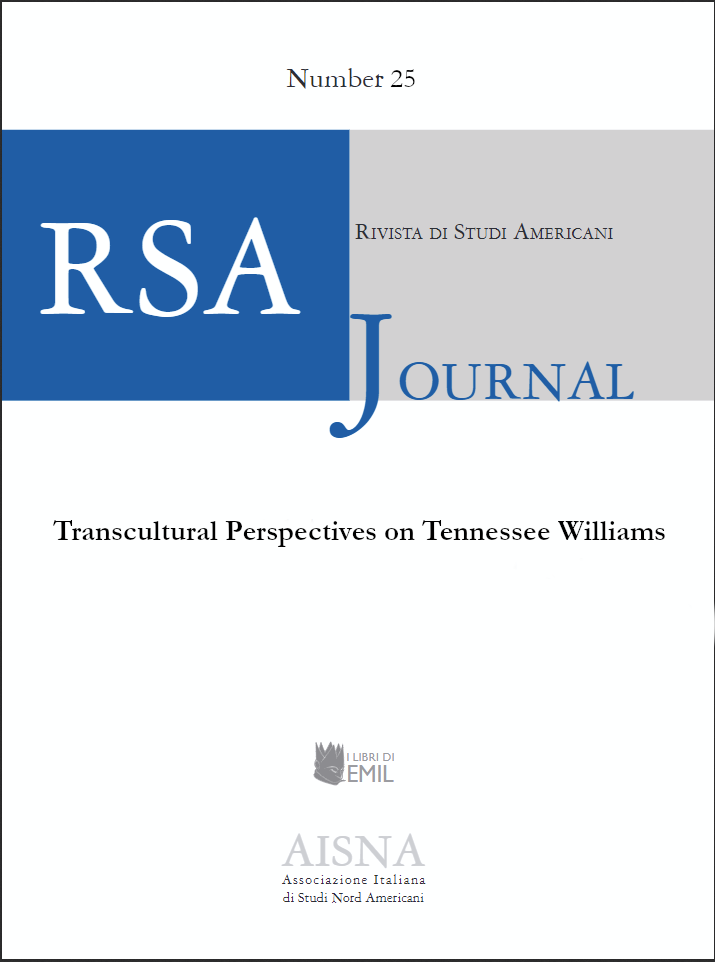Orpheus et les autres
Repression, Racism, Alienation and Superstition in “Orpheus Descending” and “La Putain Respectueuse”
DOI:
https://doi.org/10.13135/1592-4467/8607Keywords:
repression, superstition, alienation, racismAbstract
In 1975, in the pages of his memoir, Tennessee Williams acknowledged the strong influence that the existentialism in Jean Paul Sartre’s theater had on his activity as a playwright. Starting from this, the essay aims to analyze the many analogies between Orpheus Descending and La Putain Respectueuse. In a historical and political context common to both works, the two authors decided to stage topics such as repression, racism, alienation and superstition, while building two stories which are apparently very distant from each other but that, when carefully analyzed, seem to walk on parallel tracks, directed toward common goals. Despite the numerous stylistic differences, and different choices of registry (which makes La Putain an example of engagement, while pushing Orpheus towards a more psychological and introspective level), these two plays are twin creatures, driven by the same intention: the harsh critique against a strongly racist and narrow-minded America.
Downloads
Published
Issue
Section
License
RSAJournal will apply a CC BY 4.0 license to all its contributions starting with issue 37 (2026). Previous issues are licensed under a CC BY-NC-ND licence.





